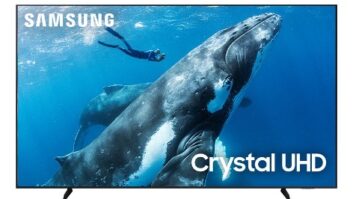It might not be as high profile as the XM/Sirius merger, but the forthcoming auction of the analog TV wireless spectrum may be far more significant for the CE industry.
The FCC is considering taking a very valuable slice of that analog TV spectrum — specifically in the 700MHz band — and putting a number of conditions on its sale that would, it is argued, promote greater competition in wireless services and devices. The move has been promoted by Google, Skype and others and opposed by incumbent wireless carriers.
The fight owes in part to current rules that keep phones “locked” to a specific service provider, who also get to determine what software those devices can run. Skype’s government and regulatory affairs senior director Christopher Libertelli told me that if a consumer were to load Skype onto his/her cellphone, they could be violating a carrier’s terms of service. Such an environment, he argued, inhibited innovation and restricted consumer choice.
The solution advocated by Skype (detailed a bit here) and others runs along the lines presented by Columbia’s TimWu. The auction should have rules that stipulate the following:
(1) Allow any consumer to attach any safe device to their cellphone, and (2) use the applications of their choice and view the content of their choice. (3) Require cellphone providers to disclose, fully, prominently, and in plain English, the following information: Limits on bandwidth usage; Devices that are locked to a single network; and Important limitations placed on features; and (4) reevaluate their “walled garden” approach to application development, and work together to create clear and unified standards to which developers can work.
Just as the Carterfone rules opened up the landline phone network to cordless phones, answering machines, caller ID and faxes, advocates of open access on the wireless side say a number of new innovations could be forthcoming, given the right regulatory ground rules.
Timothy Lee, an analyst at the libertarian think tank The Cato Institute, rebutted Wu’s proposals, here. His argument is that, when surveying today’s wireless landscape, there is ample competition and no reason for the government to pour on more regulations. (More Lee commentary can be found here.)
For its part, the wireless industry has been pushing back fiercely against the idea of imposing regulations on the auction. CTIA released a statement warning that the rules would amount to “Silicon Valley Welfare.” Many on the industry side say saddling the spectrum auction with open access regulations will make it less valuable to bidders and actually impede the roll-out of next generation wireless services.
FCC Chairmen Kevin Martin seems to be leaning toward the Skype/Google camp, based on this interview in USA Today. He is circulating draft rules to other FCC members for the spectrum auction, which will reportedly contain some “open access” requirement. The draft could be circulated this week.
No firm date has been announced as to when the FCC will decide the issue, but according to ARS, it needs to be wrapped up before the auction begins in January 2008.












